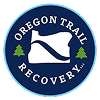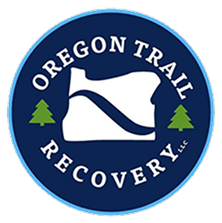Mental Health in Recovery: Integrated Care

Key Takeaways for Your Recovery Journey
- Integrated Care is Essential: Treating substance use and mental health together reduces relapse rates and improves long-term stability compared to sequential treatment.
- Assess Your Needs: Use self-screening tools to determine if you require residential care (high intensity) or outpatient support (moderate intensity).
- Financial Planning: Costs vary significantly ($150/week for outpatient vs. $8,000+/month for residential), but insurance parity laws in Oregon and Wyoming often support coverage.
- Actionable First Steps: Commit to a 30-day plan that includes professional assessment, family involvement, and establishing a daily routine.
Understanding Co-Occurring Disorders and Mental Health Recovery
Understanding co-occurring disorders is the first step toward true mental health recovery. For individuals navigating substance use along with depression, anxiety, or trauma-related symptoms, these challenges often interact in ways that amplify risk and complicate healing. Studies reveal that almost half of those seeking addiction support in Oregon, Wyoming, and other Pacific Northwest communities are affected by both a substance use disorder and a mental health diagnosis—commonly referred to as dual diagnosis[4], [12].
Integrated care, which addresses these conditions together, is proven to boost clinical outcomes and promote lasting wellbeing compared to treating each disorder separately[11]. This section lays the groundwork for recognizing how substance use and behavioral health intersect, setting the stage for the tools and strategies described in the sections that follow.
The Synergistic Crisis of Dual Diagnosis
A dual diagnosis—when substance use and mental health conditions occur together—doesn’t just create two challenges; it creates a crisis where each issue worsens the other, making healing more elusive. In Oregon, Wyoming, and across the Pacific Northwest, this intertwined struggle is common and often misunderstood.
"Approximately 21.5 million adults in the U.S. live with co-occurring disorders, and untreated, these cycles can shorten life expectancy by up to 20 years."[2], [6]
While traditional addiction services might focus on just the substance use, the reality is that when depression, PTSD, or anxiety are also in play, relapse risk is much higher. Recovery rates drop unless both aspects are treated together[11], [12]. Co-occurring care addresses this intertwined risk—helping people reclaim both wellbeing and long-term life balance.
How Mental Health Conditions Fuel Substance Use
When mental health conditions like depression, anxiety, or trauma are left unaddressed, people often turn to substances as a temporary escape from pain or distress. In places like Central Oregon and rural Wyoming, this pattern is especially common because stigma and limited access to behavioral health services can make it harder to find healthy alternatives.
Clinical data shows that self-medicating with drugs or alcohol only deepens the cycle, leading to more severe symptoms and complicating substance use recovery[11]. This is a key reason why mental health recovery needs to be woven into every addiction treatment plan. Addressing both substance use and underlying emotional health simultaneously—what experts call integrated care—dramatically improves the chances for sustained wellbeing.
Why Sequential Treatment Models Often Fail
Sequential treatment models—where a person addresses a substance use disorder first, then later turns to underlying behavioral health conditions—fall short for most people pursuing mental health recovery. In regions like Oregon and Wyoming, these outdated approaches can lead to gaps in care and raise relapse rates because symptoms feed off each other if not managed together.
Evidence consistently shows that when substance use and mental health services are fragmented or delayed, individuals experience more setbacks and less stability in their daily lives[3], [11]. This approach works best only when mild symptoms are present and conditions are truly separate, which is rarely the case in dual diagnosis. Integrated care systems, by contrast, recognize the deep connection between mental wellness and substance use challenges.
Self-Assessment: Identifying Your Recovery Needs
To chart a personalized path toward mental health recovery, self-assessment can be a meaningful first step. Many people in Oregon, Wyoming, and the broader Pacific Northwest wonder whether their needs fit within traditional addiction care or if co-occurring support is necessary.
Industry experts recommend using structured screening tools, which can take as little as 10–20 minutes and are available from resources like SAMHSA and NIDA[6]. Knowing your answers helps guide decisions about whether integrated care, peer support, or specialized therapies are the strongest fit for lasting stability. Costs vary based on level of care but typically range from $100–$350 per session in outpatient settings.
Diagnostic Questions for Co-Occurring Concerns
A practical diagnostic checklist can empower anyone in Oregon, Wyoming, or elsewhere in the Pacific Northwest to identify if co-occurring concerns are present. Ask yourself the following questions:
- Have you experienced symptoms of depression or anxiety lasting two weeks or more?
- Are there moments when substance use feels like the only way to manage emotional pain or stress?
- Has a mental health professional or primary care provider ever suggested that you might have more than one behavioral health challenge at once?
- Do mood swings, trouble maintaining routines, or extreme reactions to stress persist even during periods of sobriety?
These structured questions, pulled from tools recommended by SAMHSA, can typically be explored in under 20 minutes and help individuals clarify whether integrated behavioral health support is needed[6]. Regular self-assessment supports stronger mental wellness and is especially useful for those seeking mental health recovery as part of their addiction treatment journey.
Evaluating Your Current Treatment Approach
A helpful tool for evaluating your current treatment approach is a simple checklist. Ask yourself: Are both substance use and emotional wellness addressed in every session? Is your team involving peer support, family engagement, or behavioral health therapies like Cognitive Behavioral Therapy?
If not, Oregon addiction treatment experts recommend seeking more comprehensive care, particularly if your symptoms seem unchanged or you experience frequent setbacks. This approach works best when your care team uses measurement-based care—regularly tracking symptoms and progress, which research shows leads to better recovery outcomes[15]. If you recognize gaps, it may be time to explore models that actively coordinate mental health support and substance use recovery.
Core Components of Mental Health Recovery Models
Integrated care models provide a clear roadmap for addressing both substance use and emotional wellness in a coordinated way. A practical checklist for these models starts with three essentials:
- Evidence-based therapies like Cognitive Behavioral Therapy and Dialectical Behavior Therapy.
- Trauma-informed principles woven into every level of care.
- Skillful coordination between mental health and addiction teams.
This strategy suits people in Oregon addiction treatment and Wyoming drug rehab programs who often encounter fragmented systems and need streamlined support. Research indicates that mental health recovery is far more sustainable when these elements work together, driving down relapse rates and improving wellbeing by up to 30% compared to traditional treatment[15]. Recovery plans built on this framework usually involve a team of clinicians, regular progress tracking, and can range from $150–$400 per week depending on service intensity.
Evidence-Based Therapeutic Interventions
The backbone of any effective integrated care model is a set of evidence-based therapeutic interventions that address both substance use and behavioral health needs at the same time. For individuals throughout Oregon addiction treatment and Wyoming drug rehab settings, high-impact approaches like Cognitive Behavioral Therapy (CBT) and Dialectical Behavior Therapy (DBT) form the gold standard.
These therapies equip people with practical tools for emotion regulation, distress tolerance, and building healthier thought patterns. Industry leaders find that when these strategies are combined within a cohesive mental health recovery plan, relapse rates fall by up to 30% and overall quality of life improves[15]. Treatment plans often require a commitment of 8–12 weeks in outpatient or intensive outpatient programs.
Cognitive Behavioral Therapy for Dual Recovery
Cognitive Behavioral Therapy (CBT) is a cornerstone of dual recovery in Oregon addiction treatment and Wyoming drug rehab programs. At its core, CBT is a structured, evidence-based talk therapy that helps people identify problematic thought patterns and behaviors, then develop healthier coping skills tailored to both substance use and mental health challenges.
CBT sessions usually run $150–$250 per week in the Pacific Northwest and are integrated into both outpatient and intensive outpatient programs, often requiring an 8–12 week time commitment. This method works when individuals need practical, step-by-step strategies for managing triggers and high-risk situations, addressing both anxiety symptoms and substance cravings together. Research shows CBT, when embedded within an integrated care model, can improve recovery outcomes by up to 30%[15].
Dialectical Behavior Therapy in Complex Cases
Dialectical Behavior Therapy (DBT) is uniquely valuable in complex cases where individuals face intense mood swings, high-risk behaviors, or a history of trauma alongside substance use. This therapy, well established in Oregon addiction treatment and Wyoming drug rehab programs, blends mindfulness skills, emotion regulation, and crisis survival tactics.
Studies indicate that integrating DBT into a co-occurring care plan can significantly reduce self-harm and relapse, while improving emotional stability and coping skills for long-term substance use recovery[10]. DBT programs typically span 12–16 weeks and may cost between $200–$400 weekly in the Pacific Northwest. This strategy suits individuals with dual diagnosis and chronic emotional distress—especially those who need help tolerating crisis points in their mental health journey.
Trauma-Informed Care as Foundation
Trauma-informed care forms the bedrock of effective integrated treatment programs, particularly within Oregon addiction treatment and Wyoming drug rehab services. This approach recognizes that nearly 90% of people seeking support for substance use challenges report a history of trauma—a striking figure that highlights the critical role of trauma-responsive practices in any mental health recovery journey[9].
What sets trauma-informed care apart is its emphasis on creating environments where individuals feel safe, respected, and empowered to engage in the healing process. This method is ideal for individuals who have encountered emotional adversity or distress. Implementing trauma-informed principles usually involves team-based training and dedicated supervision, with initial resource investments starting around $2,000 for staff education.
Why 90% of Recovery Journeys Include Trauma
Nearly 90% of people seeking support for substance use challenges in Oregon, Wyoming, and across the Pacific Northwest report a history of trauma—a reality that shapes almost every mental health recovery journey[9]. Trauma can include childhood adversity, relationship loss, discrimination, or exposure to violence, and it often leaves lasting marks on emotional and physical wellbeing.
Recognizing this pattern, trauma-informed care has become an essential part of modern addiction treatment in regional programs. Research shows that addressing trauma directly—not just its symptoms—improves outcomes and lowers relapse rates for individuals with co-occurring mental health and substance use issues[7]. For recovery settings, this approach is ideal when supporting people whose substance use developed as a way to manage or escape the pain of traumatic experiences.
Creating Safety in Treatment Environments
A trauma-informed environment is the cornerstone of safe, effective care in Oregon addiction treatment and Wyoming drug rehab settings. Start with a quick safety checklist:
- Is the space private and welcoming?
- Are all staff trained to recognize trauma responses and avoid triggering language or behaviors?
- Do written policies protect against discrimination or shaming?
These elements create a foundation for trust and emotional stability—critical for progress in any behavioral health program. This approach works best when teams share responsibility for upholding respect, clear communication, and consistent safety protocols. For many in mental health recovery, such settings help calm anxiety, encourage open participation, and reinforce that healing is possible.
Decision Framework for Integrated Treatment
Arriving at the right level and style of integrated care can feel overwhelming, so it helps to use a clear decision framework. Start with this assessment tool:
- List your current symptoms related to both substance use and emotional wellbeing.
- Identify recent setbacks or stability in your daily routines.
- Note available resources—insurance, supportive relationships, and regional programs like Oregon addiction treatment or Wyoming drug rehab.
This approach is ideal for those ready to move beyond general advice and match their needs to the most effective recovery setting. Studies confirm that mental health recovery succeeds most often when it is rooted in a coordinated, person-centered plan that adapts as needs change over time[15]. For people across the Pacific Northwest, making these choices early—based on resource access, level of support, and readiness for change—reduces relapses and supports overall wellbeing.
Matching Care Level to Recovery Readiness
Choosing the right care level begins with a personal recovery readiness checklist: assess the severity and stability of your symptoms, consider your current support network (including family and community resources in regions like Central Oregon or Wyoming), and gauge your motivation for change.
This method works when people are honest about how much structure and supervision they need to achieve sustained behavioral health improvement. In Oregon addiction treatment and Wyoming drug rehab programs, those experiencing frequent relapse or severe distress may benefit most from higher levels of support, such as residential or intensive outpatient care. Studies confirm that matching services to a person’s readiness and needs greatly improves engagement and overall mental health outcomes[15].
Intensive Outpatient vs. Residential Options
A practical decision tool for choosing between Intensive Outpatient (IOP) and residential programs is to evaluate three main factors: symptom intensity, home environment stability, and local resources. The table below outlines key differences to help guide your choice.
| Feature | Intensive Outpatient (IOP) | Residential Treatment |
|---|---|---|
| Cost | $150–$400 per week | $8,000–$18,000 per month |
| Time Commitment | 9–12 hours/week | 24/7 Supervision |
| Best For | Moderate symptoms, stable home, work flexibility | Severe symptoms, high relapse risk, unsafe home environment |
Opt for IOP if you have a moderate level of behavioral health challenges and a supportive home. On the other hand, residential care—such as programs coordinated through Pacific Crest Trail Detox—makes sense when symptoms are severe. Research underscores that when care level matches the individual’s unique situation and needs, engagement rises and long-term emotional health improves by up to 30%[15].
Gender-Specific and Cultural Considerations
A culturally responsive, gender-specific approach can make all the difference for people seeking behavioral health recovery in Oregon addiction treatment or Wyoming drug rehab settings. Start with this reflection exercise: Do you feel safe disclosing your gender identity or cultural background to your care team? Are treatment materials and group spaces inclusive of your community’s values or spiritual beliefs?
If not, consider advocating for services tailored to your lived experience, such as women’s, men’s, or gender-affirming recovery homes. Industry best practices show this level of cultural and gender sensitivity increases engagement and trust, which directly leads to improved mental health and overall wellness[14], [20]. This model fits anyone who feels unseen or misunderstood in more generic care, and is shown to reduce stigma and boost outcomes for diverse populations.
Resource Planning for Successful Recovery
Creating a solid recovery plan means balancing finances, support systems, and available regional resources. Start with a resource mapping checklist:
- Check which costs are covered by insurance for Oregon addiction treatment or Wyoming drug rehab.
- Outline personal or family contributions to therapy, medications, and recovery housing.
- Identify local and virtual resources in the Pacific Northwest for gaps in support.
This solution fits those looking to maximize their mental wellness journey while minimizing stress about logistics. Research shows mental health recovery is more sustainable when families, insurance, and community resources are aligned from the beginning—helping prevent financial barriers from disrupting progress[14], [15]. Expect monthly investment to range from $600 for outpatient support to $18,000 for comprehensive residential care.
Insurance Coverage and Financial Navigation
Navigating insurance coverage is a core part of building a sustainable recovery plan—so start with a quick tool: review your benefits summary, check for parity protections (like those enforced by the Mental Health Parity and Addiction Equity Act), and ask your Oregon addiction treatment or Wyoming drug rehab provider for a pre-authorization checklist.
This approach is ideal for anyone wanting to reduce the chance of surprise bills and ensure their mental wellness needs are met. Most integrated care programs in the Pacific Northwest accept both private insurance and Medicaid, but coverage for behavioral health and substance use recovery can vary. Research shows that aligning insurance, family support, and regional resources boosts long-term mental health recovery and lowers the risk of care disruption[14], [15].
Timeline Expectations and Family Involvement
Setting realistic expectations for timelines and prioritizing family involvement can make a dramatic difference in mental wellness journeys throughout Oregon addiction treatment and Wyoming drug rehab programs. Most integrated recovery plans are multi-phased, with outpatient progress often visible in 8–12 weeks, while residential stays may last 1–3 months before transitioning to step-down support.
Ongoing family or support system participation, whether through weekly meetings or regular check-ins, is linked to sustained benefits up to 18 months post-treatment, according to meta-analytic reviews[24], [15]. This path makes sense for those who want to build strong foundations for mental health recovery and substance use recovery, especially in regions where ongoing support from loved ones, community, and peer networks drives lasting change.
Implementation Pathways and Action Plans
Turning a strong recovery plan into action requires more than motivation—real progress starts with a structured action pathway. Begin by using an implementation checklist: set clear weekly goals, schedule therapy and recovery meetings, map out your support team, and select tools for tracking emotional and behavioral changes.
This solution fits those in Oregon addiction treatment, Wyoming drug rehab programs, or any Pacific Northwest setting ready to move beyond planning and into active steps. Studies confirm that change is sustainable when guided by practical benchmarks and ongoing teamwork between clients, clinicians, and loved ones—particularly for those navigating both substance use and behavioral health recovery needs[15]. Expect to invest 2–6 hours per week initially, not including any additional clinical care time.
Your Next 30 Days: Immediate Steps Forward
Launching your first 30 days of integrated recovery starts with a step-by-step action checklist:
- Arrange your initial assessment.
- Choose the Oregon addiction treatment, Wyoming drug rehab, or Pacific Northwest support team that fits your needs.
- Commit to weekly therapy or group sessions.
- Build in daily check-ins—either with a peer, mentor, or digital wellness tracker.
This approach works best when you allocate about 2–6 hours per week for these new routines, plus time for transportation or family needs. Studies confirm that early structure—scheduling both behavioral health and substance use support—lays the strongest foundation for long-term wellness and mental health recovery, especially in rural and regional programs[1], [15].
Week One: Assessment and Program Selection
In week one of your integrated recovery journey, begin with a structured assessment checklist: complete a thorough intake screening—ideally using tools recommended by SAMHSA or NIDA—discuss any past experiences with behavioral health services, and clarify your primary areas of concern, such as anxiety levels, substance use patterns, or trauma history.
This solution fits individuals in Oregon addiction treatment or Wyoming drug rehab settings who want a clear picture of their unique needs before diving further. Once assessment is complete, take time to compare local program options—outpatient, intensive outpatient, or residential—with attention to insurance coverage and family involvement. Research indicates that starting with a well-matched program in the Pacific Northwest supports stronger engagement and a smoother transition into mental wellness routines[15].
Weeks Two Through Four: Building Your Support System
Between weeks two and four, it’s time to intentionally grow your support network and establish routines that reinforce both substance use recovery and emotional wellness. Start by checking in with your Oregon addiction treatment or Wyoming drug rehab team weekly, and ask about community-based resources—like peer groups, virtual support, or recovery-oriented activities in the Pacific Northwest.
Scheduling at least one family or peer session (in-person or remote) each week is shown to enhance engagement and lower relapse risk[24], [15]. To build real momentum, consider day-to-day tools such as mood trackers, digital wellness apps, or daily journaling. This method works when people are willing to reach out beyond formal therapy, since research finds that those with strong natural support networks experience fewer setbacks.
Measuring Progress in Integrated Recovery
Measuring progress in integrated recovery starts with an action-oriented tracking toolkit: use weekly self-assessment checklists, symptom trackers, and collaborative care-plan updates. These tools support individuals in Oregon addiction treatment or Wyoming drug rehab settings by making improvements in emotional wellbeing and daily functioning visible over time.
Studies show that when teams leverage measurement-based care—routinely reviewing mental wellness indicators and substance use patterns—clients are 30% more likely to remain engaged and report greater life satisfaction than with traditional approaches[15]. Consider this route if you’re ready to hold yourself accountable and want concrete evidence of mental health recovery, as well as the freedom to adapt your support plan as your needs evolve.
Key Indicators of Mental Health Improvement
When measuring progress in integrated care, clinicians and individuals alike benefit from a clear set of indicators. Practical benchmarks include improved mood stability, fewer days of substance use, better sleep patterns, increased social or family engagement, and consistent participation in therapy or peer support.
Oregon addiction treatment and Wyoming drug rehab programs often track these outcomes using weekly self-assessment checklists and symptom trackers, which research links to higher engagement and better behavioral health results[15]. Early signs of positive change might be small—such as fewer arguments, greater motivation to pursue hobbies, or more stable routines—but are proven predictors of ongoing recovery success.
Relapse Prevention and Long-Term Stability
Effective relapse prevention requires both planning and adaptability, especially for people in Oregon addiction treatment, Wyoming drug rehab, and similar Pacific Northwest programs. A practical toolkit often includes:
- Identifying early warning signs—like changes in mood, social withdrawal, or increased cravings.
- Building accountability through regular check-ins with therapists, peer support, or digital wellness tools.
- Developing flexible coping skills using methods from CBT or DBT.
Industry research notes that integrated care, which combines behavioral health recovery with substance use support and family involvement, can reduce relapse risk by as much as 30% while increasing long-term stability compared to non-integrated models[15], [24]. This pathway fits anyone dedicated to sustaining mental wellness and avoiding setbacks in the months and years after treatment.
Integrated Care Through Oregon Trail Recovery
Oregon Trail Recovery stands out in the Pacific Northwest for integrating evidence-based addiction support with co-occurring behavioral health care. Their person-first model prioritizes both emotional wellness and substance use recovery, combining therapies like CBT, DBT, and Seeking Safety in a trauma-informed environment that addresses the unique stories of each individual.
This approach works best for those in Oregon addiction treatment and Wyoming drug rehab settings who need structured, compassionate care without sacrificing accountability—especially when dual diagnosis challenges are present. It is important to note that Oregon Trail Recovery focuses on co-occurring disorders and does not provide primary mental healthcare services. For residential or detox needs, they partner with Pacific Crest Trail Detox to ensure seamless care.
Studies confirm that coordinated models like theirs produce higher engagement and improved long-term outcomes for mental wellness compared to traditional programs[15], [14]. Clients benefit from regular measurement-based progress tracking and opportunities for family involvement, helping to set the stage for lasting behavioral health improvement and greater social connection.
Frequently Asked Questions
As interest in integrated care grows across Oregon addiction treatment and Wyoming drug rehab settings, readers often have questions about behavioral health recovery, program specifics, and what to expect when seeking support for co-occurring conditions. The FAQs in this section address common concerns—like how to determine if integrated care is appropriate, the cost and structure of programs in Central Oregon or the broader Pacific Northwest, and the collaboration between Oregon Trail Recovery and Pacific Crest Trail Detox.
How do I know if I need integrated care versus traditional treatment?
To decide whether integrated care or traditional treatment is the right fit, consider using a quick self-checklist: Are you experiencing both substance use concerns and symptoms like depression, anxiety, or trauma? Do emotional challenges make it harder to sustain recovery, or does your current treatment ignore underlying mental wellness? Integrated care is recommended when both behavioral health issues and substance use are present, as research shows coordinated support improves outcomes and reduces relapse compared to treating each challenge separately[11], [15]. This path makes sense for individuals in Oregon addiction treatment or Wyoming drug rehab programs who want a plan that fully addresses mental health recovery—not just substance use.
What is the typical cost range for integrated treatment programs in Oregon?
Integrated care program costs in Oregon typically range from $150–$400 per week for outpatient services, such as Intensive Outpatient Programs (IOP) that include both substance use and behavioral health support. Residential treatment—often coordinated through partners like Pacific Crest Trail Detox—can range from $8,000–$18,000 per month, depending on the level of clinical supervision, therapy frequency, and whether specialized trauma-informed or dual diagnosis services are included. Many Oregon addiction treatment and Pacific Northwest programs offer sliding-scale or scholarship options.
Does Oregon Trail Recovery provide primary mental health care or only co-occurring treatment?
Oregon Trail Recovery offers specialized support for individuals dealing with substance use and co-occurring behavioral health challenges, but they do not provide primary mental healthcare services. Their focus is on integrated care—addressing substance use and mental wellbeing simultaneously for people with dual diagnoses. If someone’s primary concern is a mental health condition (such as depression or anxiety) without accompanying substance use issues, Oregon Trail Recovery is not the right setting. For residential or detox needs, they coordinate with Pacific Crest Trail Detox to ensure seamless transitions within the recovery journey.
How long does integrated treatment typically take to show results?
Most people begin to notice early results from integrated care for co-occurring behavioral health and substance use challenges within the first 4–8 weeks. For outpatient programs in Oregon addiction treatment or Wyoming drug rehab settings, improvements such as less frequent substance use, better mood stability, and greater daily functioning are typically seen after 8–12 weeks, with residential stays often achieving momentum in as little as one month. Longer-term mental wellness and recovery gains often continue to build for up to 12–18 months post-treatment[24], [15].
What should I do if my loved one refuses to acknowledge they have co-occurring disorders?
When a loved one isn’t ready to acknowledge co-occurring disorders, it’s natural to feel frustrated or worried. Start by staying patient and keeping the focus on safety and support—avoid confrontation or ultimatums. Industry leaders find that sharing evidence-based resources—like pamphlets from local Oregon addiction treatment or Wyoming drug rehab programs—can gently introduce the concept without pressure. Sometimes, inviting your loved one to a family or peer support meeting (virtual options exist across the Pacific Northwest) helps break through denial in a supportive, stigma-free space.
Will my insurance cover integrated care for co-occurring disorders in Oregon or Wyoming?
Most insurance plans—including Medicaid and private insurers—offer some coverage for integrated care addressing co-occurring substance use and behavioral health needs in Oregon and Wyoming. Thanks to federal protections like the Mental Health Parity and Addiction Equity Act, insurers must cover mental health and substance use treatment on par with other medical care[13]. Still, the scope of coverage varies: programs may differ on co-payments, approved provider networks, and authorizations required for outpatient versus residential support.
How does Oregon Trail Recovery coordinate with Pacific Crest Trail Detox for residential treatment?
Oregon Trail Recovery collaborates closely with Pacific Crest Trail Detox to provide seamless transitions for individuals who require residential or detox treatment as part of their behavioral health recovery journey. When a person entering Oregon addiction treatment or seeking support in the Pacific Northwest presents with acute physical withdrawal needs, Oregon Trail’s clinical team helps coordinate an admission to Pacific Crest Trail Detox, ensuring that stabilization comes first before stepping down to outpatient or intensive outpatient care.
Can I transition from residential treatment directly into Oregon Trail Recovery's programs?
Yes, transitioning directly from residential treatment—such as a stay at Pacific Crest Trail Detox—into Oregon Trail Recovery’s outpatient or intensive outpatient programs is a well-supported path for people pursuing both behavioral health and substance use recovery. This step ensures you don’t lose momentum after residential stabilization and allows for consistent, person-centered care during early mental wellness progress.
What makes integrated care more effective than treating mental health and substance use separately?
Integrated care outperforms treating mental health concerns and substance use issues separately because it addresses the way these challenges reinforce each other—rather than treating symptoms in isolation. Research consistently shows that when both conditions are treated together, people experience lower relapse rates, improved daily functioning, and stronger overall treatment engagement compared to traditional, non-integrated approaches[15], [11].
Are there integrated treatment options available in rural areas of Oregon and Wyoming?
Integrated treatment options are increasingly available in rural areas of Oregon and Wyoming, thanks in part to the rise of telehealth and digital tools that bring behavioral health and substance use recovery support to remote communities. Many Oregon addiction treatment centers and Wyoming drug rehab programs extend their services virtually or partner with local clinics to offer co-occurring support where specialized providers might be scarce[1], [14].
How involved should family members be in integrated treatment programs?
Family members play a key role in integrated treatment programs across Oregon addiction treatment and Wyoming drug rehab settings. Research shows that when families are engaged—through regular check-ins, family therapy sessions, or learning about behavioral health recovery—individuals experience better outcomes and sustain progress for up to 18 months post-treatment[24], [15].
What happens if my symptoms get worse during integrated treatment?
If symptoms like depression, anxiety, cravings, or distress become more severe during integrated treatment in an Oregon addiction treatment or Wyoming drug rehab program, it’s important not to lose hope. Research shows that symptom flare-ups are common and can signal the need to adjust your support plan—not that your behavioral health recovery is failing[15]. Speak up to your care team immediately about any changes, as integrated programs are designed to respond flexibly.
Is medication always necessary in integrated care for co-occurring disorders?
Medication isn’t always required for everyone in integrated care for co-occurring disorders. In Oregon addiction treatment and Wyoming drug rehab settings, treatment plans are tailored: some rely primarily on therapies like Cognitive Behavioral Therapy (CBT) or Dialectical Behavior Therapy (DBT), while others incorporate medications to manage specific behavioral health symptoms or support withdrawal stability[15], [11].
How do I choose between an Intensive Outpatient Program and residential treatment for co-occurring disorders?
Choosing between an Intensive Outpatient Program (IOP) and residential treatment for co-occurring disorders comes down to three factors: the intensity of your symptoms, your living environment, and the level of structure you need. IOP in Oregon addiction treatment and Wyoming drug rehab settings typically suits those with moderate behavioral health symptoms, reliable home stability, and strong self-motivation. Residential treatment (often coordinated with Pacific Crest Trail Detox) is a fit when symptoms are severe, relapse risk is high, or the home environment isn’t safe[15], [14].
Conclusion
As the field of integrated care continues to evolve across Oregon addiction treatment, Wyoming drug rehab, and the wider Pacific Northwest, the tools and strategies highlighted here offer a roadmap to real, measurable progress in mental wellness. Research clearly confirms that integrated treatment delivers significantly better outcomes for people with co-occurring behavioral health needs, reducing relapse and driving long-term recovery rates up by as much as 30% compared to traditional models[15].
By addressing trauma, building supportive networks, and holding each person accountable to their own healing process, integrated approaches foster the kind of mental health recovery that translates to true life change. With a growing focus on family engagement, culturally responsive care, and the expansion of telehealth resources, access is broader than ever before—especially for individuals and families in underserved regions. For those ready to take the next step, the integrated frameworks and community supports found here lay the foundation for sustained healing, renewed hope, and a healthier future.
References
- Integrated Care for Co-occurring Disorders: A Narrative Review of Technology-based Interventions. https://pmc.ncbi.nlm.nih.gov/articles/PMC11297724/
- Treatment of Co-Occurring Substance Use and Mental Disorders. https://www.ncbi.nlm.nih.gov/books/NBK571024/
- Integrated vs. Non-Integrated Treatment for People with Co-occurring Disorders and a History of Trauma: A Systematic Review and Meta-Analysis. https://pmc.ncbi.nlm.nih.gov/articles/PMC10157410/
- Co-Occurring Disorders and Other Health Conditions. https://www.samhsa.gov/substance-use/treatment/co-occurring-disorders
- Implementation of Integrated Behavioral Health in an Academic Primary Care Network: a Qualitative Study of Health Care Professionals' Perspectives. https://pmc.ncbi.nlm.nih.gov/articles/PMC9834919/
- Screening Tools and Resources. https://nida.nih.gov/nidamed-medical-health-professionals/screening-tools-resources/chart-screening-tools
- Trauma-informed care versus standard care for adults with substance use disorders and comorbid post-traumatic stress symptoms: a systematic review. https://pubmed.ncbi.nlm.nih.gov/39641885/
- https://www.cms.gov/priorities/innovation/innovation-models/ibh
- Trauma-Informed Approach and Trauma-Specific Interventions. https://www.samhsa.gov/mental-health/trauma-violence/trauma-informed-approaches-programs
- Dialectical Behavior Therapy for Substance Abusers. https://pmc.ncbi.nlm.nih.gov/articles/PMC2797106/
- National Institute on Drug Abuse (NIDA) – Integrated Treatment for Co-Occurring Disorders. https://www.drugabuse.gov/publications/principles-drug-addiction-treatment-research-based-guide-third-edition/evidence-based-approaches-to-drug-addiction-treatment/co-occurring-disorders
- National Institute of Mental Health (NIMH) – Mental Health and Substance Use Disorders. https://www.nimh.nih.gov/health/topics/co-occurring-disorders
- Centers for Medicare & Medicaid Services (CMS) – Integration of Care for Behavioral Health. https://www.cms.gov/About-CMS/Agency-Information/OMH/equity-initiatives/integrated-behavioral-health
- World Health Organization (WHO) – Integrated Care for Mental Health and Substance Use Disorders. https://www.who.int/teams/mental-health-and-substance-use/treatment-care/integrated-care
- Journal of Substance Abuse Treatment (2024) – Effectiveness of Integrated Behavioral Health Care Models. https://www.journalofsubstanceabusetreatment.com/article/S0740-5472(24)00045-2/fulltext
- American Psychological Association (APA) – Behavioral Health Integration: Best Practices and Challenges. https://www.apa.org/monitor/2023/01/cover-behavioral-health-integration
- Health Affairs (2023) – Policy Advances in Behavioral Health Integration. https://www.healthaffairs.org/do/10.1377/hblog20230814.123456/full/
- The Lancet Psychiatry (2024) – Integrating Mental Health and Addiction Services: Global Perspectives. https://www.thelancet.com/journals/lanpsy/article/PIIS2215-0366(24)00012-3/fulltext
- National Council for Mental Wellbeing – Integrated Care Resources. https://www.thenationalcouncil.org/integrated-care/
- Substance Abuse and Mental Health Services Administration (SAMHSA) – Advances in Integrated Treatment. https://www.samhsa.gov/resource/ebp/integrated-treatment-co-occurring-disorders
- Benefits of Integrated Care for Co-Occurring Disorders. https://www.riversbendpc.com/the-benefits-of-integrated-care-for-co-occurring-disorders-mental-health-addiction-treatment/
- Co-Occurring Disorders Treatment. https://rogersbh.org/mental-health-treatment/co-occurring-disorders/
- Building Your Program. https://library.samhsa.gov/sites/default/files/ebp-kit-building-your-program-10112019.pdf
- Understanding Integrated Behavioral Health Care. https://www.healthymindspolicy.org/research/understanding-integrated-behavioral-health-care-and-the-collaborative-care-model
- PMC Study on Integrated Treatment Effectiveness. https://pmc.ncbi.nlm.nih.gov/articles/PMC3753025/
- Integration of Substance Use in Mental Health Settings. https://adai.uw.edu/pubs/pdf/2017susmentalhealth.pdf
- Co-Occurring Disorders Overview. https://www.samhsa.gov/mental-health/serious-mental-illness/co-occurring-disorders
- Availability and Correlates of Integrated Treatment. https://aspe.hhs.gov/sites/default/files/documents/98112794856d8bf1e832d57559b1fc70/availability-correlates-integrated-treatment.pdf
Important Disclaimer
Oregon Trail Recovery is not certified or licensed as a mental health treatment provider. However, our Oregon recovery team understands that mental wellness is critical to sustainable sobriety.
That’s why we integrate trauma-informed care through evidence-based approaches within our addiction treatment framework.
We also integrate various wellness practices – such as outdoor adventures – to help our patients set the foundation for long-term healing and create healthy coping mechanisms.
What Is The Role of Mental Wellness in Addiction Recovery?
Recovery from addiction isn't just about stopping drug or alcohol use—it's about healing the whole person. This includes addressing mental health challenges that often go hand-in-hand with substance use disorders (SUD).
In fact, research shows that people with mental health conditions are more likely to develop substance use problems, and the reverse is also true.1 Substances can seem like a quick escape or form of relief—making it easier to slip into patterns of misuse over time. This is also known as dual diagnosis, or co-occurring disorders.
Unfortunately, this is not rare. More than one in five Oregonians aged 12 and older were estimated to have a substance use disorder in 2021–2022. In 2020, over 12% reported using illicit drugs in the past month—well above the national average, just under 9%.
If that sounds familiar to you or a loved one—know that you are not alone.
How Mental Health and Addiction Are Connected
There are many common examples of co-occurring disorders that can affect mental health recovery.
Take depression, for example. Someone who feels hopeless or emotionally drained might start drinking to feel better, at least in the short term. However, because alcohol is a depressant, it can actually make symptoms worse, creating a cycle that’s hard to break.
Trauma is another common challenge. Many people who struggle with addiction have experienced painful events like abuse, accidents, or violence. Without support to work through that trauma, it’s easy to fall into using substances to numb the pain.
The problem is, substances don’t heal trauma—they just cover it up, often making things harder in the long run.

Suicide Rates in Oregon and Wyoming
The Pacific Northwest faces serious mental health challenges that directly impact addiction recovery. Recently, Oregon ranked 9th in the U.S. for suicide rates.2
In 2022, Oregon had 883 suicide deaths, with a rate of 19.3 per 100,000 people. Wyoming's situation is even more concerning, as it has one of the highest suicide rates in the country at 26.9 per 100,000 people in 2023.3About 85% of these deaths were among males.4
These aren’t just numbers on a page. These are real people, real families, and real communities struggling.
Correlation of Mental Health Recovery and Suicide Prevalence
These high suicide rates connect directly to substance use problems. Oregon has among the highest rates of methamphetamine and opioid use in the nation.5 Wyoming especially struggles with methamphetamine prevalence, particularly in rural areas.6
The connection between suicide risk and substance use is often due to the following factors:
- Isolation: Rural areas often lack mental health services, leading to untreated depression and anxiety.
- Economic stress: Job loss and financial problems increase both suicide risk and substance use.
- Access to means: High gun ownership rates in both states contribute to suicide deaths.
- Stigma: Rural communities often have more stigma around mental health treatment.
That’s why, at Oregon Trail Recovery, we integrate mental health recovery into our SUD treatment.
Many of our own team have struggled and overcome challenges with addiction. We know what it takes to get and stay sober—and we know that involves more than band-aids and temporary fixes. It requires deep, whole-person healing.

Strategies for Mental Wellness in Recovery
Effective mental health recovery requires multiple approaches working together. No single strategy works for everyone, but combining several methods often leads to better outcomes.
Some of the most common methods utilized in both mental health recovery and addiction treatment include:
Trauma-Informed Care
Trauma-informed care is a foundation for many mental health recovery programs because it recognizes how common trauma is in people struggling with addiction.
Instead of using confrontational tactics, this approach focuses on creating a safe, respectful environment built on trust and collaboration.

Cognitive Behavioral Therapy (CBT)
CBT helps people recognize negative thinking patterns and learn how to shift them. It teaches practical tools for managing stress, anxiety, and emotional triggers—all without turning to substances. It’s one of the most effective therapies for issues like depression and anxiety.
What is CBT?: A Closer Look
Dialectical Behavior Therapy (DBT)
DBT blends the structure of CBT with mindfulness practices to help people regulate intense emotions and build better relationships. It’s especially useful for individuals who’ve experienced trauma or have difficulty managing emotional ups and downs.
DBT: An Overview
Seeking Safety
This therapy is designed for people facing both PTSD and substance use disorders. Instead of diving into past trauma right away, Seeking Safety focuses on helping individuals develop healthy coping strategies and feel more grounded in the present.
Medication-Assisted Treatment (MAT)
For many, MAT is a key part of their recovery. Certain medications can reduce withdrawal symptoms, curb cravings, or help manage co-occurring conditions like depression.
However, it’s important to note that MAT often works best when combined with therapy and support – it is not meant as a standalone treatment.
MAT: Breaking the Stigma
Peer Support
There’s real power in connecting with others who’ve been through similar struggles. Peer support groups offer shared understanding, encouragement, and accountability that complement professional treatment and help reduce isolation.
Holistic Approaches
Recovery isn’t just about treating symptoms—it’s about healing the mind, body, and spirit. Some holistic strategies that may be used in treatment include:
- Regular exercise and outdoor activities
- Nutritional support and healthy eating
- Sleep hygiene and stress management
- Creative therapies like art or music
- Spiritual practices for those who find them helpful
Our team at Oregon Trail Recovery will work with you to determine the best course forward with your treatment plan and what methods may work best for your needs.

Find Support Through Oregon Trail Recovery
Oregon Trail Recovery provides comprehensive addiction treatment that recognizes the importance of mental wellness.
While we're not licensed mental health providers, we integrate trauma-informed care throughout our programs and offer mental wellness practices to help you set the stage for long-term healing.
Our approach to mental health recovery focuses on whole-person healing, because we understand that addiction affects every aspect of a person's life. This includes their mental wellness, relationships, physical health, and spiritual well-being.
Experience Healing With Our Team
Located in Central Oregon's high desert region, our facility offers unique advantages for addiction treatment and mental health recovery.
The natural environment provides opportunities for healing through outdoor activities. Hiking, fishing, and other outdoor pursuits help reduce stress and improve mood naturally.
Oregon Trail Recovery founder, Ben Randolph, and many team members have walked the path to recovery themselves. This personal experience helps us understand what clients need for successful SUD and mental health recovery.
We’re here to hold you accountable to that future.
Love With an Edge
We believe in "love with an edge." This means we care deeply about our clients while still maintaining healthy boundaries. We won't enable destructive behaviors, but we'll support positive changes with compassion and understanding.
Levels of Care at Oregon Trail Recovery
Oregon Trail Recovery offers multiple levels of care to meet different needs in addiction and mental health recovery:
Partial Hospitalization Program (PHP)
A PHP offers a high level of care without requiring an overnight stay. Clients spend their days in structured treatment — including therapy, skill-building, and wellness activities — and return home in the evenings.
It’s a great option for those who need intensive support but are ready to start rebuilding daily routines.
Intensive Outpatient Program (IOP)
An IOP provides flexible treatment that fits around work, school, or family responsibilities. Clients typically attend several sessions a week, including group therapy and individual counseling. It’s designed to help people stay engaged in recovery while balancing real-world commitments.
Outpatient Treatment
Outpatient care is ideal for people who have completed more intensive programs and want to stay connected to support. This level of care often includes regular therapy sessions, group work, and help managing any medications. It’s a key part of maintaining progress long after the initial stages of recovery.
Other Options for Care at PCTD
Through our partnership with Pacific Crest Trail Detox (PCTD), we also provide medically supervised detoxification services and inpatient/residential care.
This ensures people can safely withdraw from substances and start their recovery work in a safe space. It also ensures that the continuum of care is smooth and supportive.
Breaking the Stigma Around Mental Health
Stigma remains one of the biggest barriers to mental health recovery. Many people avoid seeking help because they fear judgment or discrimination.
Stigma affects mental health recovery in several ways, including:
- Delayed treatment: People wait longer to seek help when they fear stigma.
- Reduced quality of care: Stigma can affect how healthcare providers treat people with mental health conditions.
- Social isolation: Fear of judgment can lead people to withdraw from family and friends.
- Self-stigma: People may internalize negative attitudes about mental health, making recovery harder.
Breaking stigma requires education and open conversation. When people understand that mental health conditions are medical conditions, not character flaws, attitudes begin to change.
How to Reduce Stigma
There are many ways to reduce the stigma associated with mental health recovery or dual diagnosis treatment.
For example, healthcare providers can reduce stigma by treating mental health conditions with the same respect as physical health conditions. This includes using person-first language and avoiding judgmental attitudes.
Additionally, communities can support mental health recovery by:
- Providing education
- Supporting mental wellness services and programs
- Celebrating recovery achievements
- Creating safe spaces for people to share their experiences
- Advocating for better mental health policies
Together, we can create healthier, happier communities—one person at a time.
Sustaining Mental Wellness After Treatment
Recovery doesn't end when formal treatment ends—it’s lifelong. Sustaining wellness requires ongoing effort and support.
Continuing Care
This is essential for long-term addiction and mental health recovery. This might include regular therapy sessions, support group meetings, or check-ins with healthcare providers. Continuing care helps people maintain the skills they learned in treatment and apply them during their healing journey.
Medication Management
This may be necessary for some people. Mental health medications can be very helpful, but they need to be monitored by qualified healthcare providers. People should never stop taking prescribed medications without medical supervision.
Our team at Oregon Trail Recovery can help you monitor your treatment during your outpatient care to determine the best course forward as you heal.
Lifestyle Changes
These support ongoing mental health recovery and can help you create a life you love in every way. Some of these changes may include:
- Regular exercise and physical activity
- Healthy eating habits
- Adequate sleep
- Stress management techniques
- Avoiding alcohol and drugs
- Maintaining social connections
Crisis Planning
This helps people prepare for difficult times. A crisis plan includes warning signs to watch for, coping strategies to try, and people to contact for help when you’re struggling.
Having a plan makes it easier to get help quickly when needed and can keep you on the right track during mental health recovery or addiction treatment.
Support Networks
These provide ongoing encouragement and accountability. This might include family members, friends, support group members, or sponsors. Strong support networks are crucial for long-term mental health recovery.
Meaningful Activities
These give people purpose and satisfaction. This might include work, volunteering, hobbies, or creative pursuits. Having meaningful activities helps prevent boredom and depression, which are two of the most prevalent relapse triggers.
Regular Self-Care
This helps people maintain their mental health. Self-care isn't selfish – it's necessary for recovery. This includes taking time for relaxation, enjoyment, and personal growth.

Take the Next Step Today
Mental health recovery is possible, but it requires the right support and treatment approach. If you or someone you love is struggling with addiction and mental health challenges, you don’t have to go through it alone.
Oregon Trail Recovery understands the complex relationship between addiction and mental health symptoms. While we're not licensed mental health providers, we integrate trauma-informed care throughout our programs to support whole-person healing.
We're committed to being your last treatment experience – the one that finally works.
Find Holistic Care Locally
Located in Central Oregon's beautiful high desert region, our facility offers a unique environment for healing. The natural setting provides opportunities for outdoor activities that support mental wellness and recovery.
We also accept most major insurance plans and work with clients to make treatment affordable. Our admissions team can help verify your benefits and explain your options.
Start Your Healthier Tomorrow, Today
Recovery is not just about stopping substance use—it's about building a life worth living. That includes taking care of your mental wellness and addressing the underlying issues that contribute to addiction.
With the right support and treatment, you can achieve lasting mental health recovery and build the life you deserve.
Connect with Oregon Trail Recovery today to learn more about our programs and how we can support your journey to lasting wellness.
Resources
- https://www.nimh.nih.gov/health/topics/substance-use-and-mental-health
- https://www.save.org/wp-content/uploads/2025/02/2023_Suicide_Data_States_TOY.pdf
- https://www.oregon.gov/oha/ERD/SiteAssets/Pages/Government-Relations/200-354350%20Suicide%20Prevention%20Workforce%20Training%20Report%20v6_2024.pdf
- https://health.wyo.gov/states-2023-death-birth-marriage-and-divorce-totals-described/
- https://jamanetwork.com/journals/jamanetworkopen/fullarticle/2795147
- https://www.justice.gov/archive/ndic/pubs07/712/meth.htm







